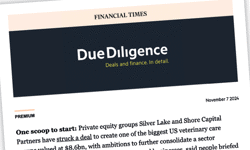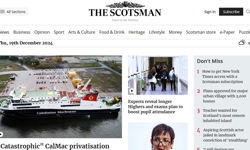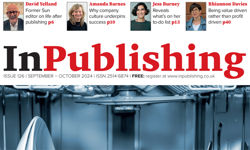The biggest opportunity for the regional press in 2016 can be summarised in a single word: consolidation.
Trinity Mirror’s £220m takeover of Local World has created the UK’s largest regional publisher with nearly 200 daily and weekly newspapers, along with all their websites, resulting in three major benefits:
* Wider geographical reach. Trinity Mirror now has daily newspapers in Birmingham, Bristol, Cardiff, Derby, Hull, Leicester, Liverpool, Manchester, Newcastle and Nottingham – to name just ten top regional cities.
* Formidable digital presence. Each and every paper has its own local website which, combined with the national Mirror website, is the UK’s biggest and most diverse regional web footprint.
* Higher profit margins. The obvious back office savings should give Trinity Mirror higher profit margins in the next financial year.
Managing the merger will, however, be no easy challenge: most of Trinity Mirror’s newspapers are – like many regionals – suffering double-digit declines in print sales, with the consequent vicious circle of less advertising, more editorial cuts to make ends meet, and even less reader appeal.
On the plus side, Trinity Mirror’s websites are experiencing rapid audience growth and slow but steady increases in online revenues.
But no-one has yet offered proof that the so-called digital ‘tipping point’ has been reached – in that advertisers’ growing web spends are nowhere near replacing falling print takings, which means total revenues are still falling.
And so to the big opportunity: can Trinity Mirror reshape its enlarged kingdom in a way that attracts substantially more income from growing websites and, at the same time, slows steep print declines?
The answer lies in investment: spending serious money on new techniques to make big bangs from combined web offerings, but also using consolidation’s ‘honeymoon’ period to press the pause button on cutting print resources.
A larger Trinity Mirror can only succeed by both becoming an ever-more-serious web player and by caring for its print products while they still provide three quarters of revenues.
If consolidation works, more might follow: analysts are already suggesting other possible mergers, with Johnston Press and Newsquest – the second and third largest regional players after Trinity Mirror – reportedly eyeing each other up.
Smaller publishers could also be involved, in deals like Newsquest’s £15m takeover of the Romanes Media Group last year, although for now, all eyes are watching how the new Trinity Mirror performs.
The biggest threat, of course, is a greedy stock market: bosses at Trinity Mirror have already pledged up to £12m in ‘cost synergies’, as expected from any merger.
But if revenues don’t grow fast enough online or stabilise enough in print then shareholders could demand more savings – which can only come via less investment and more cuts, driving slower online growth and faster print decline.












